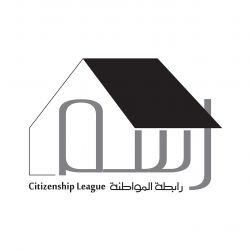The Right to Change
The stringent restrictions for Syrians in Lebanon started in 2015 and have negatively impacted the legal and financial situation of most refugees. Today, as many as 70% of refugees in Lebanon live below the poverty line. Refugees face specific risks due to their age, gender, background and coping strategies, including harmful ones such as early marriage, survival sex and worst forms of child labor. almost one in four reported cases of sexual and SGBV involves a child.
The data show that women are an important source of income for families, although, many refugees, in particular those who are living in rural and remote areas in Beirut and Aley, are unaware of women’s role in the society.
THE PROJECT THEORY AND DESIGN
“The Right of change” project is based on the theory of change which is if women are empowered through skills and opportunities in social development, and operate in a more gender-sensitive environment, then they can play a greater role in mitigating conflict and promoting resiliencies within their community.
This project is designed to increase CL educational and awareness raising outreach on gender equality and citizenship issues. It endeavors to increase CL flexibility in responding gradually to a wider range of target groups by empowering additional numbers of people from different locations and contexts – where possible - to spread the culture of gender equality and citizenship among wider social sectors using active and interactive participatory techniques.
TARGETS
Since men understanding of the women rights will flat the road for women to claim and reach their rights. And children of today are the women and men of tomorrow. Therefore, This project target women, men and children.
Targeted groups are Refugees and Community workers or activists in three areas which are Beirut, Beqaa and Aley.
PROJECT OBJECTIVES
Raising the refugees and community activist awareness of gender equality, citizenship and building local women's capacity to encourage female leadership as a key ingredient to a peaceful society as women are empowered to transform conflict.
Specifically, by: Reducing the risks and consequences of SGBV through empowering women, men, female and male children with knowledge, skills and educational resources.
Promote women’s social empowerment through providing a capacity building training to enhance their ability and to improve their skills in order to change their communities regarding gender equality.
